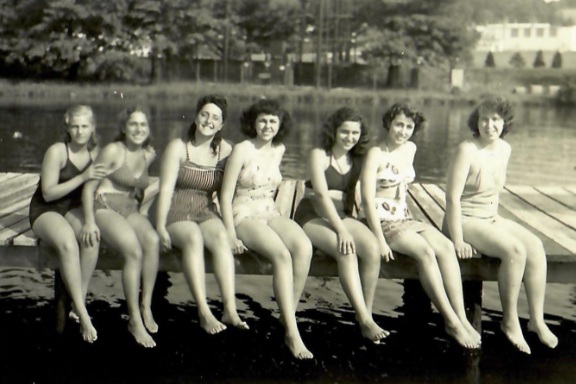
Mark Fine recalls the most memorable moments of his experience at Camp Airy with humor.
During his first summer as a counselor in 1996, he got caught in a huge downpour at a Hagerstown Suns minor league baseball game as he and another counselor huddled around 10 campers to keep them safe.
“Those 8-year-olds were in this small circle, where Erin (a counselor) and I were holding hands and shoulders just to keep them in place while it was truly downpouring for a good 15 minutes when we finally got them into the bus,” he says.
Despite a less than ideal situation, this experience drove home the greatest strength of the camp: its relationships. Bonding experiences bring everyone together, and they are the memories that last a lifetime.
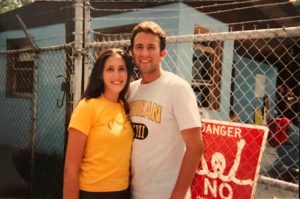
Of course, many delightful stories—more recently, trendy obsessions with Sheetz and Royal Farms or camp songs created by kitchen staff—remain among the bonds of the campers who share them.
Longtime camp alumni Mark and Kim (Hyatt) Fine share their memories along with leaders at Camps Airy and Louise—Jewish overnight brother-sister camps marking the beginning of their centennial celebrations this summer.
They all shed light on why these camps have endured for so many years.
Traditions
The camps started with a vision from founders Aaron and Lillie Straus. During the 1920s, the couple discovered a need for an outdoor respite from Baltimore’s cramped working conditions for young Jewish women.
Camp Louise for girls was founded in Cascade, Maryland, in 1922. Camp Airy for boys followed in 1924 in Thurmont, Maryland. The camps provided an opportunity for Jewish immigrants to bond with their peers.
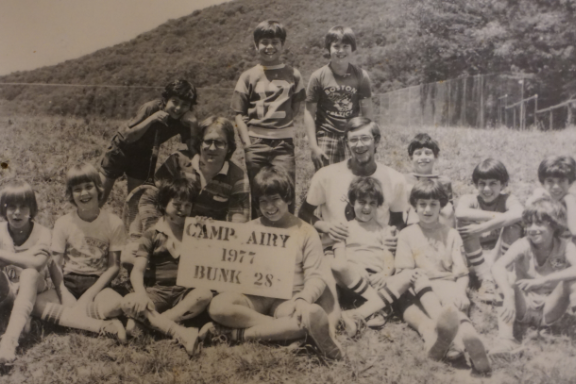
Located 8 or 9 miles apart in the Catoctin Mountains of western Maryland, these camps were also affordable.
“Our camps were founded on a basis that no Jewish child who wanted a camp experience shouldn’t be able to come due to economic reasons,” says Lauren Perlin, the camps’ director of development.
That commitment has endured today. The Awesome Fund campaign awards more than $400,000 to families annually and continues to receive its support from the Straus Foundation.
These efforts support enduring traditions that have been a significant part of the camp appeal since the beginning, including Friday night folk dances and Shabbat.
Sometimes, these experiences were campers’ primary connection to their culture.
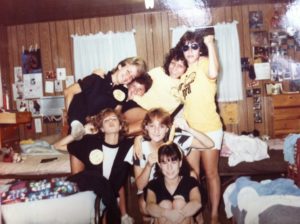
“The songs, the prayers and the values—a lot of that I learned at camp more so than Hebrew school,” says Mark’s wife, Kim, whose association with the camp began as a camper in 1989.
With few Jewish peers where he grew up in Salisbury, Mark—whose Camp Airy bonds started as a camper in 1987—formed his Jewish identity at camp.
Although they didn’t realize how important these connections were at the time, relationships are one of the reasons the Fines send their children to camp today.
Connections
Camp activities now include more diverse options, but the essence of camp remains the same.
“Camp is still, I think, at its core—then and now—about walking around, goofing around and laughing with your bunkmates and your friends,” says Camp Airy Director Marty Rochlin. Starting as a camper in 1984, Rochlin has served many roles at Camp Airy, including counselor, unit leader and assistant director.
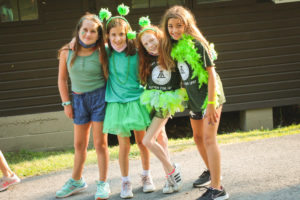
Camp friendships like the ones formed at Airy and Louise are unique. The individuals one meets at camp were the friends who became partners, lifelong friends and wedding guests.
“I think you come back (to camp each year) because you meet these awesome kinds of best friends that are different than the friends you make at home,” he says.
These friendships ground Kim’s family. Camp is a tie to her Pikesville roots every summer, despite her family’s frequent moves to support Mark’s career.
“It just makes us feel like we’re never going to lose our connection to where we came from,” she says.
Why connections blossom at camp have much to do with the camp environment: the extended stay, screen-free zone and safe space with no judgments. Single-gender camps also reduce social pressure.
“We’re teaching the boys how to have healthy relationships, how to be mensches and how to be kind and gentlemen,” Perlin says. “We’re teaching the girls how to be strong.”
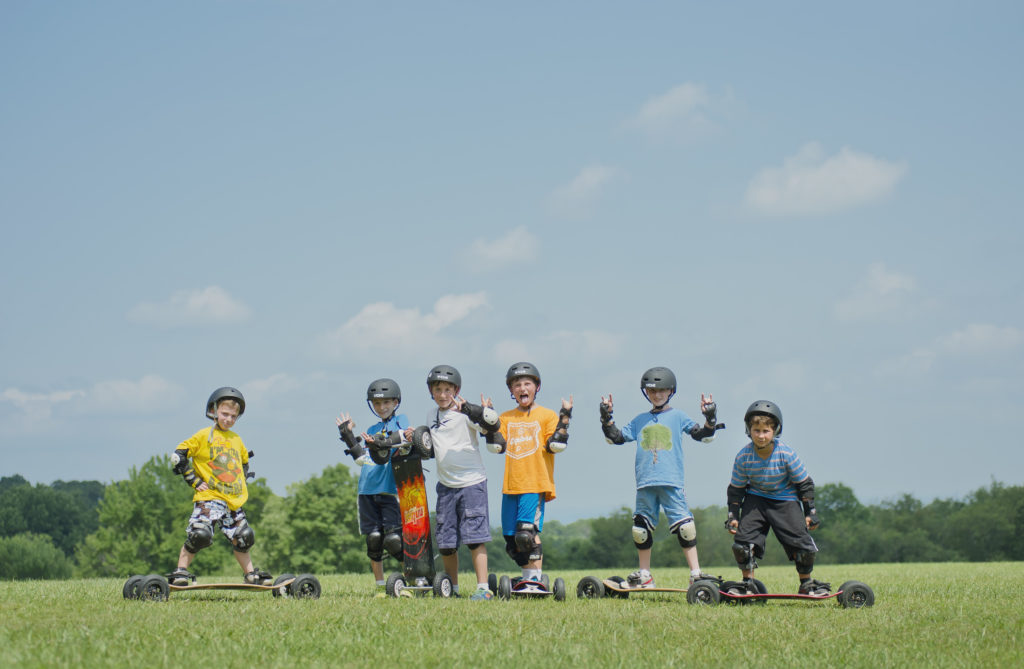
Generations
Campers often return year after year. They now represent third-, fourth- and fifth-generation campers—a heritage which also makes for a dynamic experience.
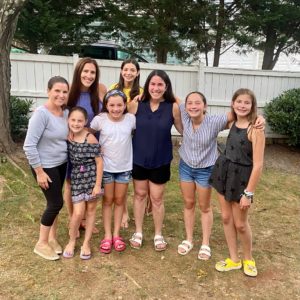
“They’re swimming in the same swimming pool, they’re eating in the same dining hall or they’re singing the same songs that we sang at Shabbat in the ’30s that we’re singing (now),” Perlin says.
Families enjoy returning for the nostalgia. With little turnover in leadership, parents trust sending their children there, says Camp Louise Director Alicia Berlin. She began in 1980 as a camper and has served as CIT, counselor, unit leader and assistant director during her 30 plus years at Camp Louise.
She adds that the camp experience is even more meaningful to come back as staff.
“These kids are counting down the days from the moment they leave camp until the following summer. It’s pretty remarkable the impact that we could have,” Berlin says.
Celebrations
The footprint of Camps Airy and Louise has extended throughout the country and overseas, and the 100th anniversary celebrations will reflect these connections as well.
Along with in-house celebrations for Louise and Airy in 2022 and 2024, respectively, a virtual “toast from coast to coast” will take place in 2023. A joint camp gala is also planned for October 2023.
Being able to celebrate the longevity of a camp in the wake of isolation from a global pandemic is significant. This anniversary draws to the forefront the importance of camp connections.
Berlin agrees. “We always say camp is needed more than ever—especially right now.”







